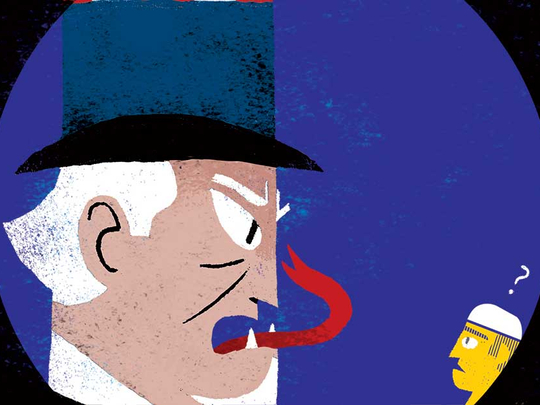
At his inauguration as United States president in March, 1933, Franklin D. Roosevelt famously told Americans that “the only thing we have to fear is fear itself — nameless, unreasoning, unjustified terror, which paralyses needed efforts to convert retreat into advance”.
FDR was addressing the belief that economic collapse, social upheaval, possibly even a revolution, might be imminent. His rhetoric represented American sentiment at its best and finds an echo in what the Obama administration has been saying in the days since this month’s terrorist attacks in Paris.
US President Barack Obama, however, has been a bit of an exception. For most of the last ten days, debate in the US over Syrians — and occasionally over Muslims generally — has bordered on the hysterical. House Republicans are threatening to shut down the government if any more Syrian refugees are admitted to America. More than 30 governors have declared that the refugees are not welcome in their states (despite not actually having the power to prevent their arrival). Two presidential candidates, Jeb Bush and Ted Cruz, have suggested that admitting Syrians might be OK so long as all of the refugees are Christians. The Mayor of Roanoke, a medium-sized city in Virginia, issued a statement approvingly recalling Roosevelt’s order, locking up more than 100,000 people of Japanese ancestry, most of them US citizens, in internment camps during the Second World War (the mayor later apologised).
As officebearers and candidates all sought to one-up each other in demonstrating political belligerence, last week’s most jaw-dropping bit of political mendacity came from New Jersey Governor (and GOP presidential candidate) Chris Christie, who told a right-wing talk radio host that he would refuse to let any Syrian into the US, even if the programme were limited to orphans under the age of five. “The fact is that we need appropriate vetting and I don’t think orphans under five are being, you know, should be admitted into the United States at this point,” Christie said.
Later in the week, Donald Trump caused a stir when he appeared to suggest that American Muslims should be registered by the government and tracked as a security measure. Challenged about those comments, Trump proved once again that he is as deft as any career politician at finessing awkward questions — offering vague answers that readily allowed listeners to put their preferred spin on the question of whether he wants to turn American Muslims into second-class citizens.
Make no mistake: Trump, Christie and the rest are telling voters what they want to hear. A Fox News poll released last week found that 67 per cent of Americans oppose the administration’s plan to resettle an additional 10,000 Syrian refugees in the country. More ominously, a recent poll of Iowa Republicans found one-third of them in favour of outlawing Islam in the US.
From where does this blind, often unreasoning, fear come? Some of it is the latest iteration of Americans’ post-9/11 quest for perfect security. Some of it is an extension of the generalised distrust of government that has corroded US politics over the last two generations. Some of it is a function of a political season dominated by Republicans who are each striving to sound tougher and more anti-Obama than their opponents.
As 9/11 has receded into memory a raw, very basic, cleavage has opened in American society between those who still believe the attacks “changed everything” and those who think that in retrospect, America overreacted in attempting to prevent a future attack by curtailing civil liberties. The rise and spread of Daesh (the self-proclaimed Islamic State of Iraq and the Levant), culminating, for now, in Paris, has brought that division back to the centre of US politics.
On one side are those who see an existential threat in Daesh and similar groups and think America needs to act accordingly. On the other is a view that is either nuanced or naive, depending on your point of view. This holds that one can’t fight an ideology and should never seek to demonise a religion.
That these latest calls to close America’s gates and curtail people’s rights and freedoms have been driven by an attack an ocean away is especially worrisome. It hints that a decade-and-a-half of distance from 9/11 has, for many Americans, done little to promote reflection. In an election season that, at least from the Republican side, was being driven by fear and anger even before the Paris attacks this is an unsettling combination.
On that score, the full version of FDR’s famous words may be instructive. After warning against “fear itself” the newly-installed president went on to say: “In every dark hour of our national life a leadership of frankness and of vigour has met with that understanding and support of the people themselves, which is essential to victory. And I am convinced that you will again give that support to leadership in these critical days.”
We can only hope.
Gordon Robison, a longtime Middle East journalist and US political analyst, teaches Political Science at the University of Vermont.












